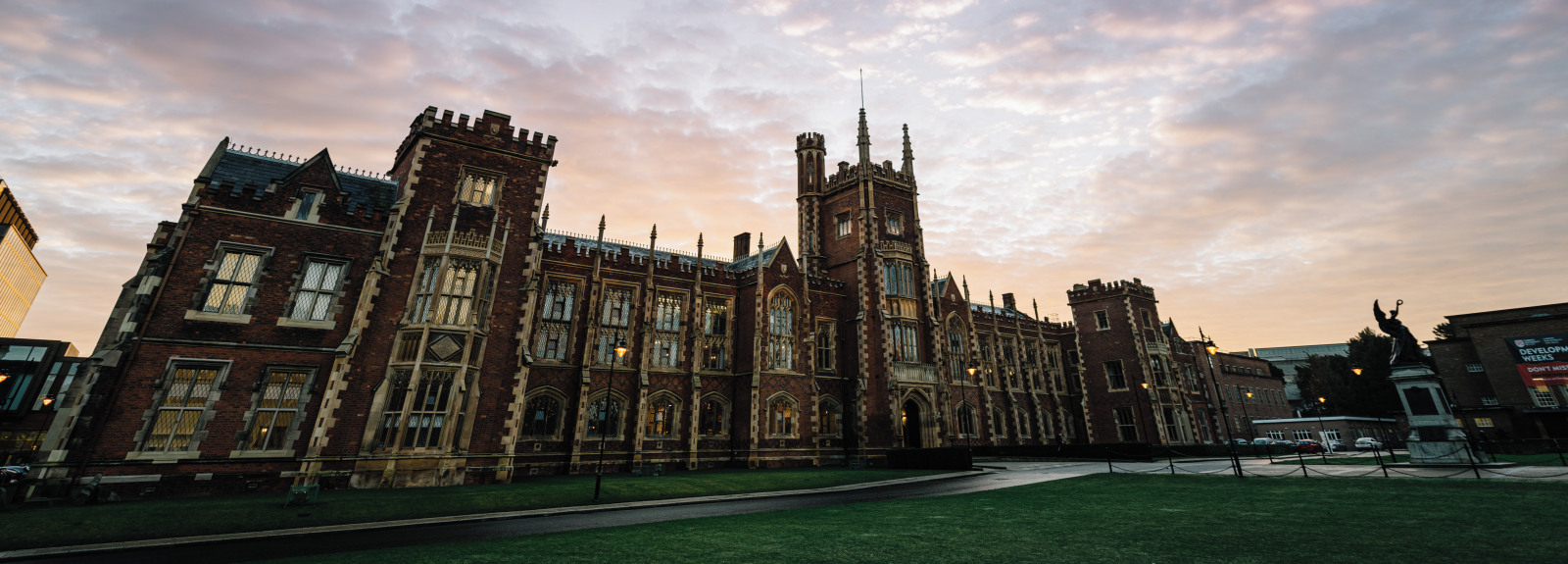Our Greatest Achievements
Queen’s is the 9th oldest university in the UK – so we’ve had more than our fair share of achievements and accolades.
Discover the moments, people and research that have made Queen’s the world-class university it is today.
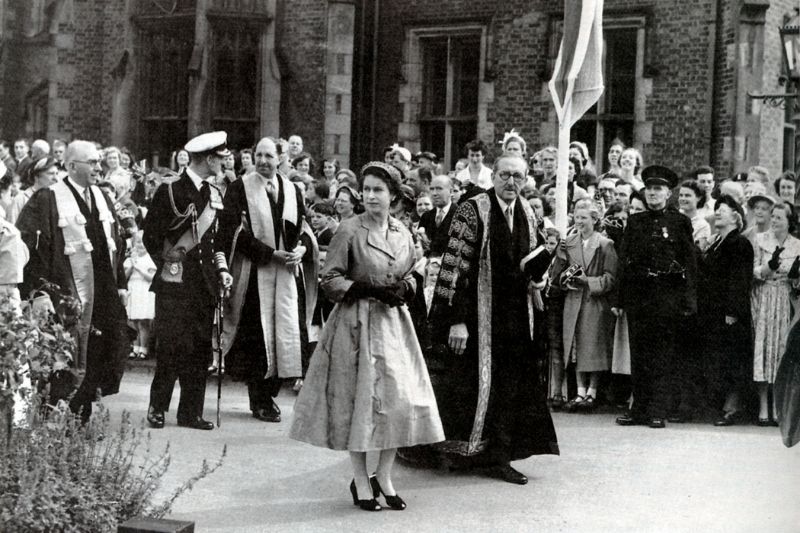
With a name like ours, it’s no surprise that we have a royal past.
Queen’s University was founded by Queen Victoria as part of the Royal Charter in 1845. Queen Victoria, along with her husband Prince Albert, were later among the first visitors to our beautiful Lanyon Building.
And our royal connections have continued throughout the years – Queen Elizabeth II visited the university shortly after her coronation in 1953.
Royal Visit 1953, Photo courtesy of The Belfast Telegraph
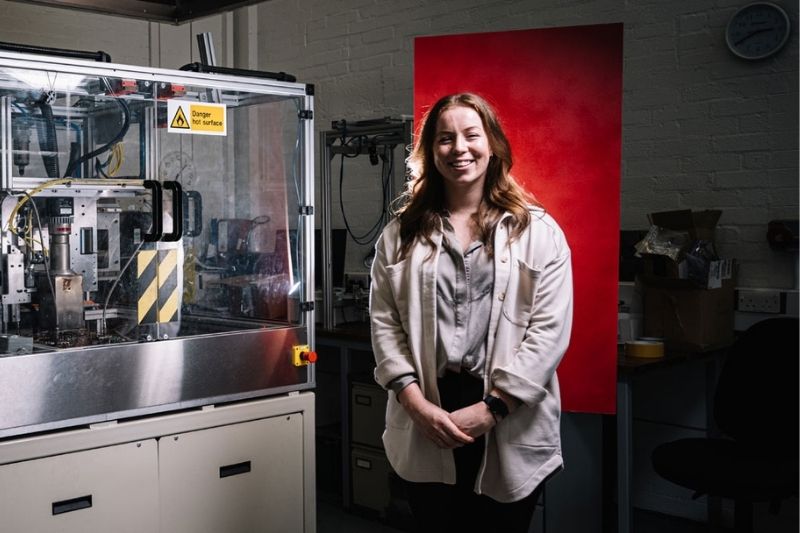
Queen’s joined the prestigious research-intensive Russell Group in 2007, making us one of the UK's 24 leading research-intensive universities.
We are particularly well known for our research into agri-food, sustainable energy, medical research and our innovative cybersecurity work. In REF 2021, 99% of our research environment was assessed as world-leading or internationally excellent.
We have a lot of research projects in the pipeline – read about our research themes.

Queen’s has been a hub of innovation since its inception in 1845.
Our most notable scientists and engineers have made a huge impact around the world. John Stewart Bell, also known as ‘Northern Ireland’s Einstein’ originated ‘Bell’s Inequality. We even have sporting royalty among our alumni – Bob Bell’s engineering talents helped secure five Formula One world championships for both the McLaren and Renault teams.
We’re also home to one of Britain’s leading inventors. Maire O’Neill specialises in cryptography and was one of only five engineers to received the prestigious 2014 Royal Academy of Engineering Silver Medal.
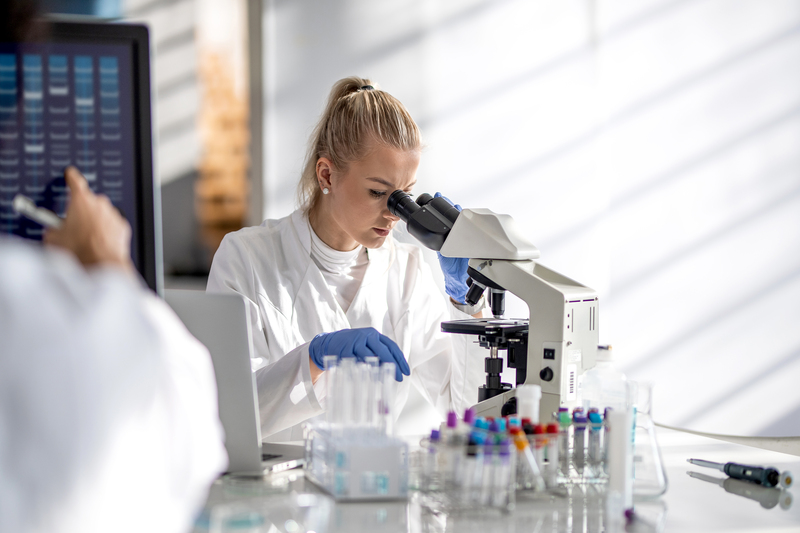
Queen’s is at the forefront of revolutionising healthcare around the world.
Our graduates have made a huge global impact on healthcare around the world and have saved millions of lives around the world.
One of our most notable graduates, James Francis Pantridge is known as the father of emergency medicine and invented the portable defibrillator.
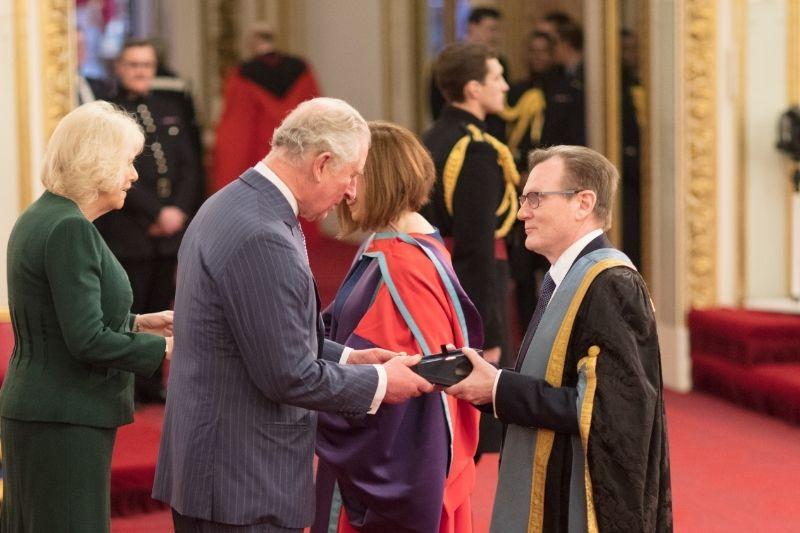
We have been recognised for our innovating teaching methods and commitment to student satisfaction, receiving accolades such as the Queen's Anniversary Prize for Higher and Further Education.
Since the biennial prizes were first awarded in 1994, Queen’s has been the recipient of seven awards, underlining our status as an outstanding UK educational institution and a centre of excellence.

As a global institution, we have a major role to play in making a positive impact in our environment.
Our Strategy 2030 sets out how we will embed the UN Sustainable Development Goals across all our activities, from research and education to adopting a leadership role in the promotion of the SDGs, and leading by example in areas such as equality, diversity and inclusion, sustainable procurement and a commitment to disinvestment from fossil fuels.
We are a signatory to the UN Accord, which recognises the key role that global universities have in nurturing a culture of sustainability and achieving the Sustainable Development Goals (SDGs) by 2030 through research and education.
We are committed to embedding them in every aspect of our activity.
NOTABLE QUEEN'S UNIVERSITY ALUMNI AND HONORARY GRADUATES
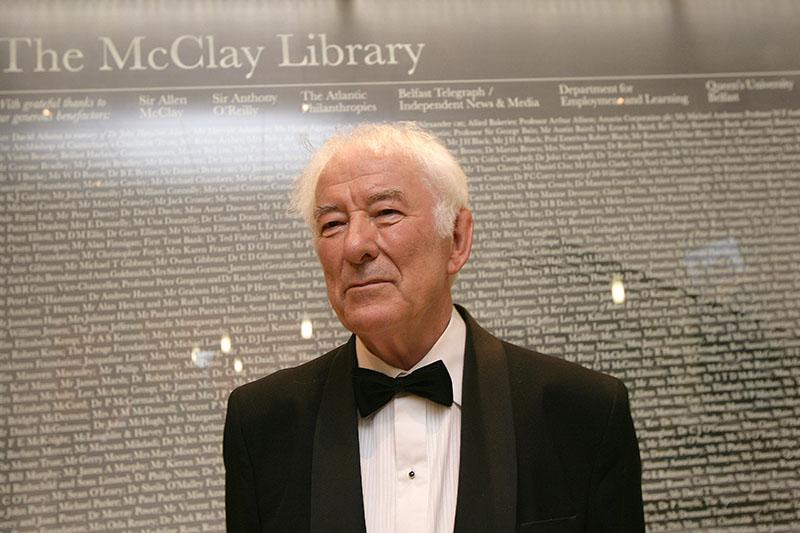
Seamus Heaney
World-renowned Irish poet, playwright, translator and lecturer, Seamus Heaney graduated from Queen’s in 1961 and was a lecturer in Modern English Literature. He won The Nobel Prize in Literature in 1995.
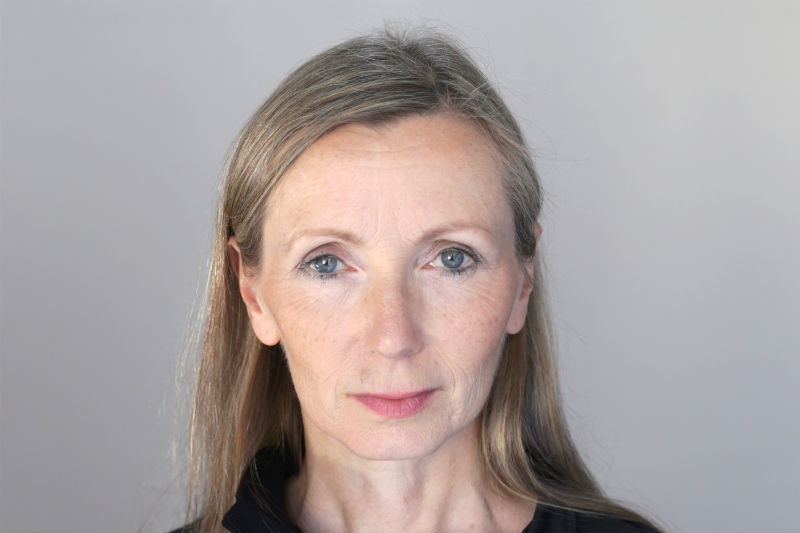
Anna Burns
The Man Booker prize-winning novelist was a Fellow at the Seamus Heaney Centre from 2019-20, working with creative writing students and contributing to the Centre’s activities within the University and wider literary community.
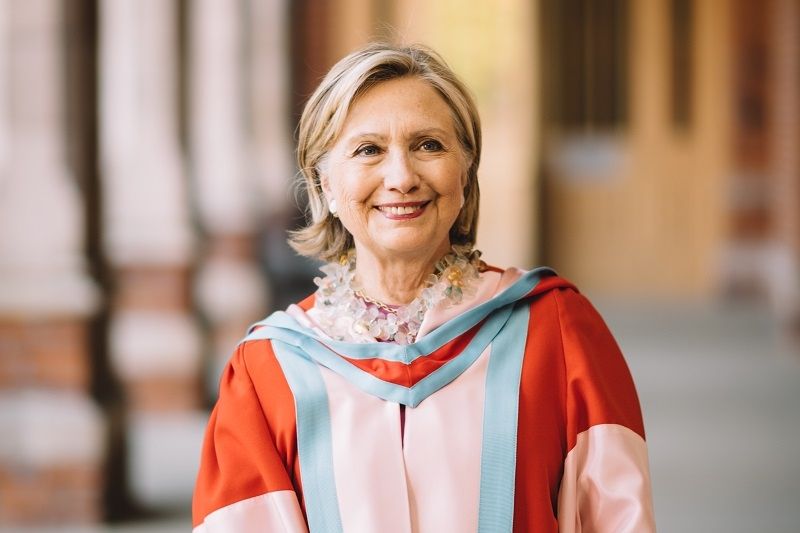
Secretary Hillary Rodham Clinton
Hillary Rodham Clinton is an internationally recognised public servant. She has strong links to Queen’s and Northern Ireland due to her outstanding contribution to peace and reconciliation in Northern Ireland. In 2018, she received an Honorary Degree from Queen’s for exceptional public service.
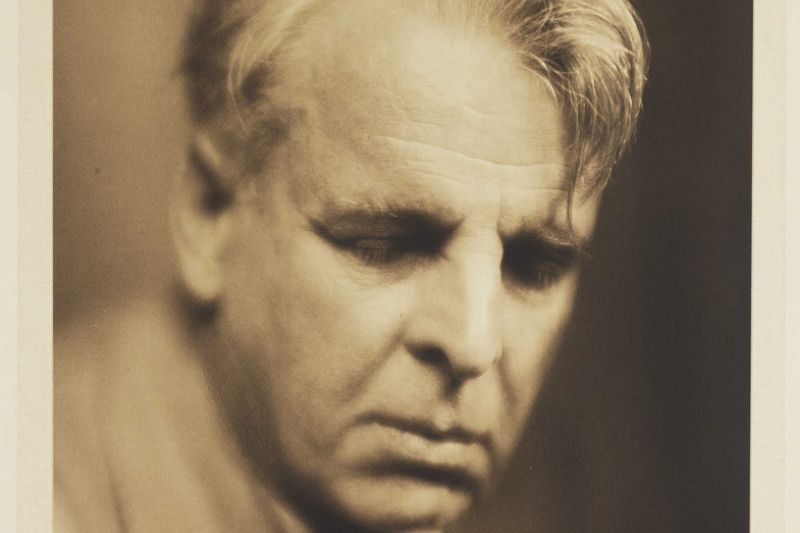
W.B. Yeats
One of the most prominent figures in literature and winner of a Nobel Prize for literature, W.B. Yeats was honoured at Queen’s in 1922.
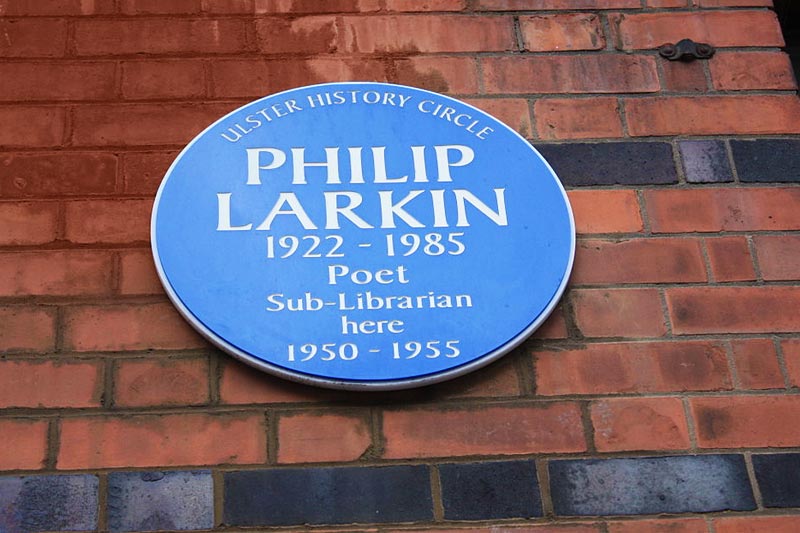
Philip Larkin
Philip Larkin worked as sub-librarian at Queen’s University for five years, a time of his life that would be hugely influential on his later work.
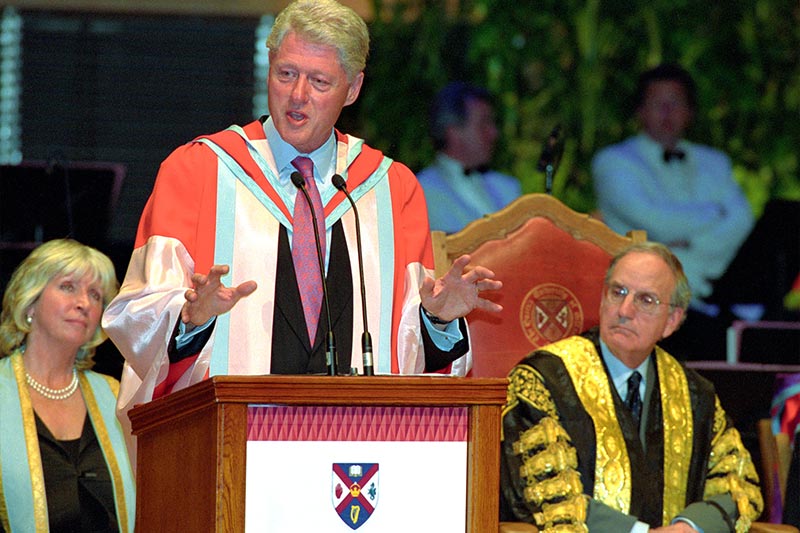
Our Honorary Graduates
Some of our honorary graduates may surprise you. Through their ties to Queen’s and Northern Ireland, these alumni are an important part of our history.
Famous figures including Winston Churchill, Tony Blair, Bill Clinton, Archbishop Desmond Tutu and Nelson Mandela have received honorary degrees from Queen’s. We have honoured several well-known literary figures including Iris Murdoch, Maeve Binchy and Hilary Mantel.
